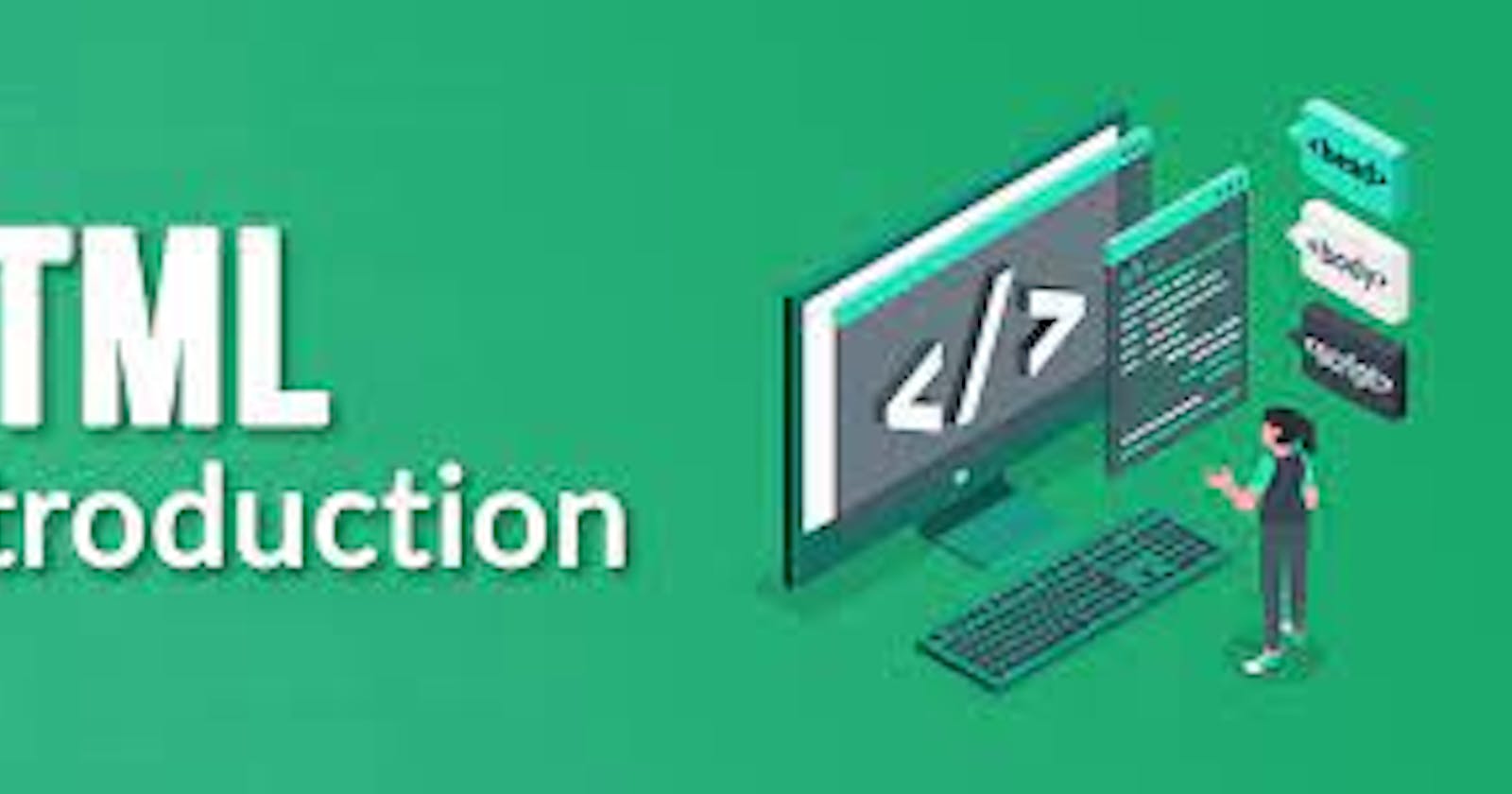What is HTML?
- HTML stands for Hyper Text Markup Language.
- HTML is the standard markup language for creating Web pages.
- HTML describes the structure of a Web page.
- HTML consists of a series of elements.
- HTML elements tell the browser how to display the content.
- HTML elements label pieces of content such as "this is a heading", "this is a paragraph", "this is a link", etc.
A Simple HTML Documents:
A simple HTML document contain the following: Example <!DOCTYPE html> Page Title
My First Heading
My first paragraph.
This is the pattern of HTML language.
Example Explanation:
In this example
- The <!DOCTYPE html> declaration defines that this document is an HTML5 document.
- The element is the root element of an HTML page.
- The element contains meta information about the HTML page.
- The element specifies a title for the HTML page (which is shown in the browser's title bar or in the page's tab).</li>
<li>The <body> element defines the document's body, and is a container for all the visible contents, such as headings, paragraphs, images, hyperlinks, tables, lists, etc.</li>
<li>The <h1> element defines a large heading.</li>
<li>The <p> element defines a paragraph.<h2 id="heading-what-is-an-html-element">What is an HTML Element?</h2>
An HTML element is defined by a start tag, some content, and an end tag:</li>
</ul>
<p><tagname> Content goes here... </tagname>
The HTML <strong>element</strong> is everything from the start tag to the end tag:</p>
<p><h1>My First Heading</h1></p>
<p><p>My first paragraph.</p></p>
<p>##Note:Some HTML elements have no content (like the <br>/<hr> element). These elements are called empty elements. Empty elements do not have an end tag!</p>
<h2 id="heading-web-browsers">Web Browsers:</h2>
<p>The purpose of a web browser (Chrome, Edge, Firefox, Safari) is to read HTML documents and display them correctly.</p>
<p>A browser does not display the HTML tags, but uses them to determine how to display the document:
<img src="cdn.hashnode.com/res/hashnode/image/upload/.." alt="img_chrome.png" class="" title="align="left""></p>
<h2 id="heading-html-page-structure">HTML Page Structure</h2>
<p>Below is a visualization of an HTML page structure:</p>
<p><html></p>
<p><head></p>
<p><title>Page title
This is a heading
This is a paragraph.
This is another paragraph.
Note:The content inside the section will be displayed in a browser. The content inside the element will be shown in the browser's title bar or in the page's tab.</p> <h1 id="heading-now-what-are-html-tags">Now what are HTML Tags?</h1> <p>HTML tags are simple instructions that tell a web browser how to format text. You can use tags to format italics, line breaks, objects, bullet points, and more. </p> <p>These tags live in the HTML (or the Hypertext Markup Language) of every webpage. Put, HTML is the language of web pages.</p> <h1 id="heading-the-most-common-html-tags">The Most Common HTML Tags:</h1> <p>There are nearly 100 different types of HTML tags that you can use for your web pages. Here is a list of the most common HTML tags:</p> <p><img src="cdn.hashnode.com/res/hashnode/image/upload/.." alt="download.png" class="" title="align="left""></p> <p><img src="cdn.hashnode.com/res/hashnode/image/upload/.." alt="slide_2.jpg" class="" title="align="left""> I Hope you will learn it from html and enhance your knowledge </p>
